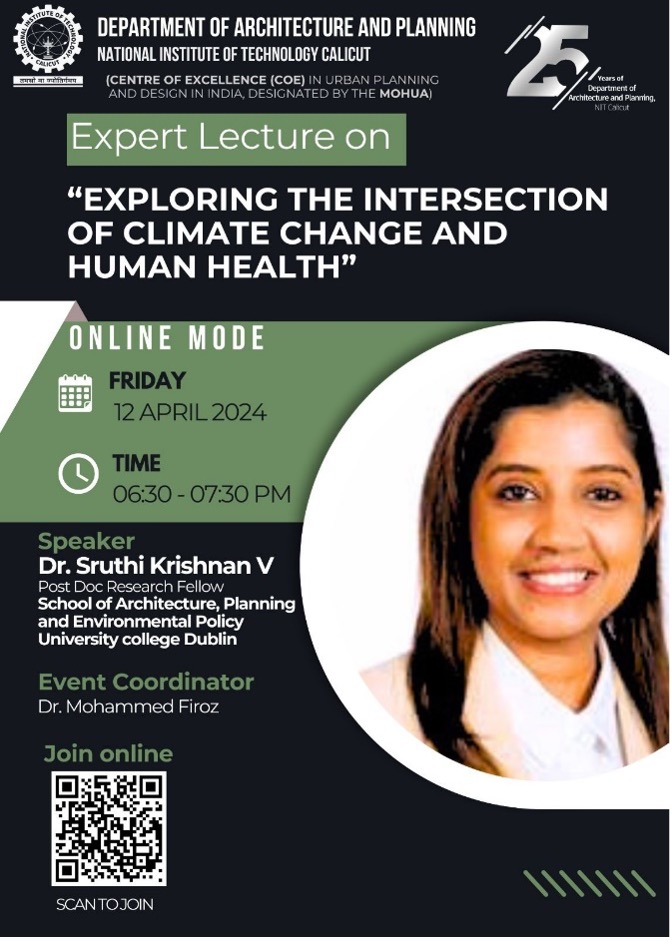The project TRIGGER member Dr. Sruthi Krishnan, presented an informative lecture in the Department of Architecture and Planning, National Institute of Technology Calicut, India, about the complex connection between climate change and human health. Sruthi, a Post-doctoral Researcher in charge of a Work Package in the TRIGGER Project at University College Dublin in Ireland, shared her experience on this critical matter.
The lecture, titled ‘Exploring the Intersection of Climate Change and Human Health,’ was part of the Co-Teaching initiative for the course ‘Human Settlements and Climate Change.’ She enlightened the audience with up-to-date data highlighting the significant effects of climate change on human health.
During the session, Dr. Sruthi introduced the audience to the TRIGGER EU Project, where she serves as a Work Package Leader. She highlighted the innovative approach of the project, with a particular focus on the Climate Health Connection Labs (CHCL).
These labs serve as important centres for interdisciplinary collaboration, aiming to address the complex challenges climate change poses on human health. Furthermore, she emphasized the significance of various European Climate-Health Cluster projects, illustrating the collective effort to tackle the complex issues arising from climate change and its implications for public health.
Sruthi’s lecture served as a reminder of the urgency to address climate change not only as an environmental issue but also as a pressing public health concern. Through interdisciplinary research and collaborative initiatives like the TRIGGER Project, we can strive towards a healthier and more sustainable future for all.
For further insights into the Trigger project and its efforts to address climate-induced health problems, stay connected through the project’s social media channels (Linkedin & X), visit the website, and subscribe to the newsletter. Your support is vital in tackling climate-related health challenges.

